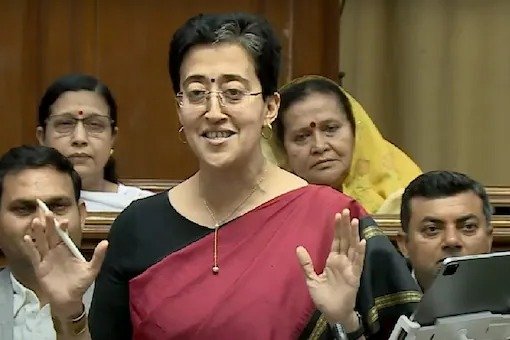Delhi Budget 2024-25: Atishi Boosts Education, Women’s Welfare with Rs 16,400 Cr Allocation
Delhi’s Finance Minister, Atishi, unveiled the Budget 2024-25 in the state Assembly, emphasizing significant allocations for education and women’s welfare. With an outlay of Rs 76,000 crore, Atishi allocated Rs 16,396 crore for the education sector, aiming to enhance educational infrastructure and accessibility. A key highlight of the budget was the introduction of the ‘Mukhyamantri Mahila Samman Yojana,’ offering Rs 1,000 monthly aid to women above 18 years old, effective from the fiscal year 2024-25. This initiative aims to empower women economically and address gender disparities. Under the health sector, Atishi proposed a budget of Rs 8,685 crore, focusing on improving healthcare facilities, including funding for hospitals, mohalla clinics, and essential medicines. Additionally, the budget allocated Rs 6,216 crore for various social welfare schemes, emphasizing support for marginalized communities. The education budget prioritizes teacher training, school construction, and maintenance, with allocations of Rs 100 crore for teacher training, Rs 150 crore for school construction, and Rs 45 crore for classroom maintenance. Furthermore, Rs 42 crore was proposed for Schools of Specialised Excellence, enhancing educational opportunities for students. In addressing infrastructure needs, the budget allocated Rs 3,353 crore for the power sector, Rs 7,195 crore for the Delhi Jal Board, and Rs 1,768 crore for road and flyover projects. The housing and urban development sector received Rs 9,800 crores, while public transportation was allotted Rs 5,702 crore. Notably, Atishi emphasized the Delhi government’s commitment to local governance, allocating Rs 8,423 crore to the local body, prioritizing education, healthcare, and sanitation. This holistic approach aims to foster community development and ensure equitable access to essential services. Reflecting on Delhi’s progress, Atishi highlighted the significant growth in Gross State Domestic Product (GSDP) and per capita income over the past decade. The budget underscores the government’s vision for inclusive growth and transformative change, aligning with the AAP’s principles of transparency and accountability. The budget presentation marks a milestone in Delhi’s journey towards socio-economic development, guided by a commitment to empowerment, education, and holistic welfare.

